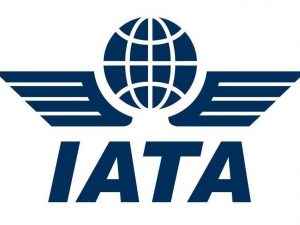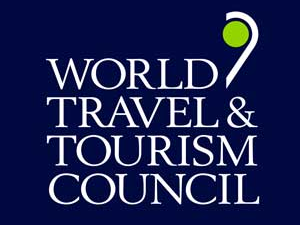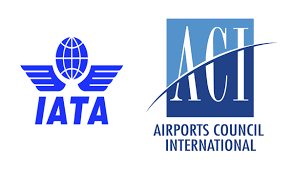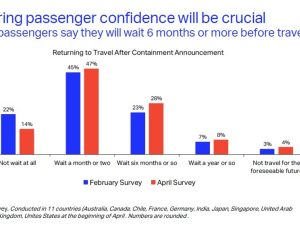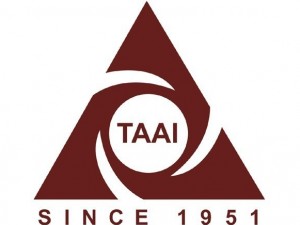International Air Transport Association (IATA) announced that airlines in the Asia-Pacific region will be the hardest hit by the COVID-19 crisis, with losses expected to be $29 billion for 2020. This is more than a third of the $84.3 billion industry losses globally.
Read More »Only 8% of refunds to agents from Jet Airways: IATA
International Air Transport Association (IATA) has released a letter to national associations that states that agencies will receive only 8% of the total refunds from Jet Airways. The letter states, “Unfortunately, the balance of the Security Deposit held by IATA (after settling 100% of all refunds up to the date of suspension) was not sufficient to cover all the remaining refunds that have been approved by Jet Airways in the post-suspension refund process. Therefore, IATA will have to pro-rate the total refund against the net remaining balance withheld, which means that your agency will receive approximately 8% of the total refunds approved by the airline.” This will be automatically included in their billing. Refunds that have been rejected by the airline will not be processed.
Read More »IATA releases criteria for use of COVID-19 testing in travel process
The International Air Transport Association (IATA) has released criteria for the use of COVID-19 testing in the travel process. Should governments choose to introduce COVID-19 testing for travellers arriving from countries considered as high risk, testing must deliver results fast, be able to be conducted at scale, and operate to very high rates of accuracy. Additionally, testing must be cost-effective and not create an economic or logistical barrier to travel.
Read More »WTTC expands ‘Safe Travels’ protocols to M!CE sector
WTTC has unveiled the second phase of measures to rebuild global consumer confidence to encourage the return of travelling. The latest protocols are designed to enable sectors such as tour operators and convention centres, meetings and events to thrive once again. The extended measures follow the ‘Safe Travels’ guidelines that were launched by WTTC on May 12. Detailed discussions took place with key stakeholders and organisations to ensure maximum buy-in, alignment and practical implementation, to set clear expectations of what travellers may experience in the ‘new normal’. Those relating to airports and airlines have been devised following close consultation with WTTC Members IATA and Airports Council International (ACI), to rebuild trust and provide reassurance that airports and airlines will offer safe environments in which to fly once travel restrictions are relaxed.
Read More »ACI and IATA jointly issue paper on restarting aviation safely
Airports Council International (ACI) World and the International Air Transport Association (IATA) have jointly issued a paper laying out a pathway for restarting the aviation industry – Safely Restarting Aviation – ACI and IATA Joint Approach. They have called on governments to ensure new measures introduced for airports and airlines in the wake of COVID-19 are consistent across the world. Any restrictions put in place should be supported by scientific evidence, they added. ACI and IATA are both central members the COVID-19 Aviation Recovery Task Force (CART) being led by the Council of the International Civil Aviation Organization (ICAO). Angela Gittens, Director General, ACI World, said during a webinar conducted by CAPA India on May 29, 2020, that, “Airports and airlines have come together with ICAO and the wider aviation industry to address the biggest challenge ever faced by commercial aviation in restarting a global industry while continuing to halt the spread of COVID-19. There is currently no single measure that could mitigate all the risks of restarting air travel but we believe a globally-consistent, outcome-based approach represents the most effective way of balancing risk mitigation with the need to unlock economies and to enable travel.” The joint approach proposes a layered approach of measures across the entire passenger journey to minimise the risk of transmission of COVID-19 at airports and onboard aircraft, and to prevent aviation becoming a meaningful source of international re-infection. Such measures should be globally consistent and subject to continued review, improvement, and removal when no longer required, to ensure an even recovery.
Read More »Agents need to renegotiate terms with IATA, bring down bank guarantee by 50%: Sunil Satywakta
Sunil B Satyawakta, Director, Civica Travels Pvt. Ltd, and Former Chapter Chairman (UP & Uttarakhand), TAAI, feels strongly that all IATA agents should re-negotiate the terms with IATA. He explains, “I am expecting that our ticket sales will be down at least 50 per cent in the next financial year. Keeping this in mind, we must ask IATA to bring down our bank guarantee and our targets by a minimum of 50 per cent. Normally the amount of financial security is based on an agency’s 20-day average turnover in the last 12 months. The submission deadline for Bank Guarantees is 24 June 2020 for the period 1st July 2020 to 30th June 2021. As the circumstances are unlikely to change in the coming 12 months, we must voice this concern to them before that.”
Read More »In 2021, global passenger demand to be 24% below 2019 levels: IATA
According to the new analysis by International Air Transport Association (IATA), in 2021 it is expected that global passenger demand (measured in revenue passenger kilometres, RPKs) will be 24% below 2019 levels and 32% lower than IATA’s October 2019 Air Passenger forecast for 2021. This forecast is modelled on the baseline scenario of domestic markets opening in Q3, with a much slower phased opening of international markets. This would limit the air travel recovery, despite most forecasts pointing toward a strong economic rebound late this year and during 2021.
Read More »Most air passengers wish to begin travelling this month: IATA survey
A survey conducted by International Air Transport Association (IATA) at the beginning of April reveals that as many as 47% of air passengers surveyed wished to begin travelling within a month or two (by May or June). The survey, conducted across 11 countries (including India), also revealed that at least 4 per cent still continued being sceptical and did not wish to travel for the foreseeable future. Respondents for the survey were from Australia, Canada, Chile, France, Germany, India, Japan, Singapore, United Arab Emirates, United Kingdom and the Unites States.
Read More »TAAI urges airlines for cash refunds instead of credit vouchers, waive off cancellation charges
Addressing concerns from member agencies regarding refunds/credits from airlines/ IATA due to the impact of Covid2019 as customers are demanding refunds from travel agents, TAAI has said, “With reference to the unilateral decision of the airlines to give credit notes and no cash refunds, we have made it very clear to all concerned that, cash refunds are required due to the global pandemic situation. It is the right of the passenger to get back his amount paid in stipulated time. Cancellation charges shall not be borne by the traveller due to the cancellation of flights/ lockdown situations/ banning of flights by government of India as well as of other countries, etc.” In an official statement by TAAI to its members, it was written, “We are in daily communications with the Indian Prime Minister’s office(PMO), Ministry of Civil Aviation (MoCA), Director General of Civil Aviation (DGCA), Ministry of Tourism (MOT), Ministry of Finance (MoF), Ministry of Commerce and Industry (MoCI), Niti Aayog, IATA Global Head Quarters, IATA-India, all airlines individually including Low Cost airlines in India. We are working in support with, all associations of travel, tourism & hospitality trade under UFTAA, FAITH, CII and other leading trade bodies. Our concerns have been voiced not only in our communications but also in mainline media being TV channels & newspapers, trade media as well as social media.” The TAAI team urged its members to be patient, claiming that the as Govt. of India, is prioritising the requests of citizens, industries, trade, travellers, etc. and are actioning to the best of their abilities, with timelines. “Their main objective right now is to ensure the health safety of all persons and providing proper medical …
Read More »IATA allows agents to make payment settlements later without penalties
An official statement by IATA has said that travel agents can make payment settlements later without penalties, in the wake of the global crisis of COVID-19. The statement read “For travel agents, we’re allowing settlements to be made a bit later, without penalties. While remittance periods have been kept in accordance with BSP Calendars, we are taking a flexible approach and preliminary figures confirm this, showing that default rates in 2020 are a bit below the year-ago period—despite the stresses on the system in 2020.” In addition, recognising the fact that it may be difficult or impossible to get audited financial statements, or arrange a financial guarantee, “IATA is offering to extend deadlines for these statements by up to a month.”
Read More » Tourism Breaking News
Tourism Breaking News

